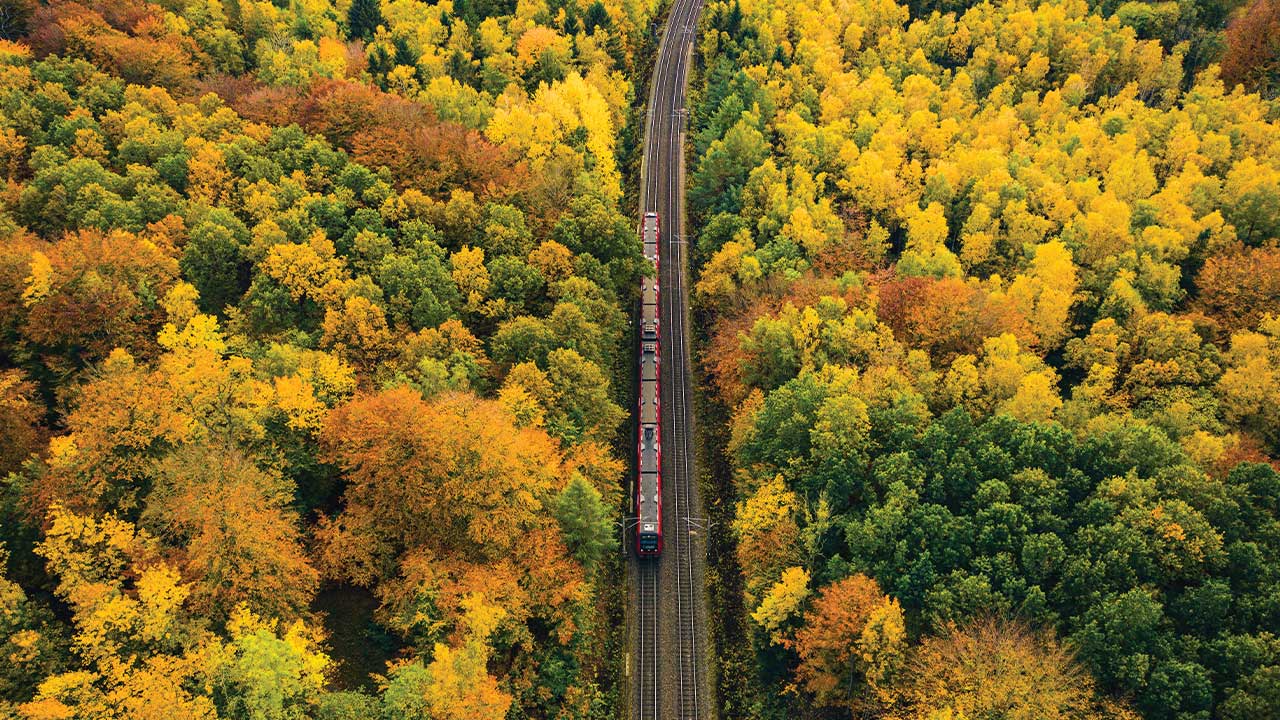In a diverse industry built on land, sea and air travel, every mover must work hard and draw on the latest resources to create their version of environmental and social sustainability. Dominic Offer, Director of Client Engagement and Sustainability Committee at Bristol Global Mobility, shares his firm’s journey
One of the hardest questions in sustainability is where to start.
The challenge with sustainability is that it is a reflection of life. We are carrying the weight of human history with every step we take, socially, environmentally and in the governance that we adhere to. The fact is we must look backwards and forwards at the same time. We must gaze into the past to understand our mistakes, using science in the present to give us faith that our next steps will be better than our previous steps, all with the aim of propelling ourselves into the future. At times, it feels like a paradox, where we now ask the question: is Atlas carrying the world, or is the world carrying Atlas?
We have been discussing sustainability within Bristol for many years. In 2019, I published an article, called ‘Global Mobility Versus Global Climate Change’ (available on our website) discussing the state of the world, with the wildfires in California, hurricanes in Japan threatening the rugby World Cup and how these incidents would impact the world of mobility. In 2020, we began speaking about it in more depth, and it was in May 2020 that we took our first steps towards creating a simple plan to become more sustainable as a business.
As we formulated our ideas, the pandemic was in full swing and Bristol, along with almost every other company in the world, was finding new ways to work and discovering new possibilities while tackling challenges we hadn’t dreamed of a few months earlier.
At the same time, we decided to tackle the topic of sustainability. We realised very quickly how much we were doing, and if you find the correct eyes within your organisation, you are most likely doing so as well. We became members of the UN Women’s Empowerment Principles and shortly after that, CEO Action. Both are organisations that we felt related to our aim of connecting with (as opposed to controlling) people.
Later, we added being a disability-confident employer in the UK. Knowing we had made a commitment to social sustainability felt comfortable and familiar and is still a core focus of our initiative.
We recognised, however, there was still much to be done, and began looking at other parts of our sustainability journey. It was then we were faced with the most vast and imposing challenge, environmental sustainability.
In an industry that makes its living from the coordination and support of flying, driving, and shipping everyone with all of their possessions, everywhere, this seemed like a behemoth for which we were not equipped to deal. And, in truth we were not.
Our industry is, in many ways, willing but built upon an infrastructure that is not yet able to make the kind of change we need, because the technology and economic capability is not yet where is needs to be. If we remove the pillars that support it, our industry would collapse. However, because we stand at one point it does not mean we cannot imagine ways to get to where we want to be, and so we are working on those dreams.
There are so many companies currently building the components that will create the bridge to allow us to reach our goal of reducing our environmental impact, and we want to work with them. Bristol is collaborating with Planet Mark to understand how we quantify that gap, so when the parts are created to help us to where we need to be, we know the distance we must travel and are ready with the tools we must use and arrive at the destination of sustainable business.
We are not experts in sustainability, we are a company that specialises in support. People need to move, they always have and always will, and Bristol works with partners who care about that support as much as we do. Yet, we recognise that we leave a rather large print on the world that supports us, so we are striving to make it better.
We cannot tell you where to start, because we don’t know the best place for you. Each journey is individual, but what we are trying to do is be as transparent as possible – so anyone can learn from our successes and mistakes, while anyone further along can help guide us.
On 1 November, we published our strategy, so you can see what we plan to do. It’s a work in progress but we welcome you to engage with it and with us.
Bristol has pledged not to make a profit from our sustainability initiative – and so we are giving our clients and suppliers the emission data we collect back to them for free. The intention is to understand our journey together. With this, we also recognise that not everyone is in the same place. That is why we are not going to pressure our supplier partners to make changes, but encourage them to speak to us.
We are not making a strategy for an individual client or supplier; we want to engage with the whole industry on how to make the journey to sustainable business a real possibility.
To see Bristol Global’s strategy please go to: www.bristolglobal.com/sustainability or to speak to the company about its journey, email sustainability@bristolglobal.com For more information on Planet Mark, visit:
www.planetmark.com

